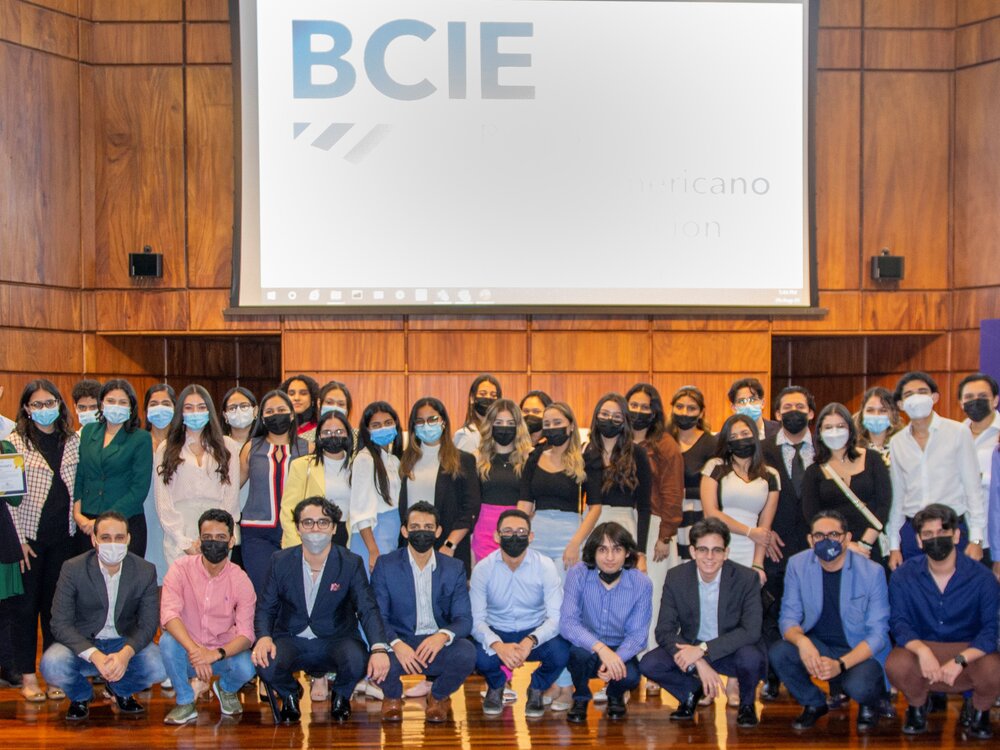75 students from UNITEC visit the CABEI’s headquarters to learn more about its operation and integrationist role

In Honduras, future Finance-Economy and International Relations professionals learned how CABEI promotes sustainable development, growth, and well-being in the region through programs, projects, and initiatives.
Tegucigalpa, August 26th, 2022.- In order to strengthen the educational capacities of 75 students of Finance-Economy, and International Relations of the Central American Technological University (UNITEC, for its acronym in Spanish), this Friday the Central American Bank of Economic Integration (CABEI) opened the doors of its headquarters so that they knew first hand their operation through practical experiences.
During a discussion conducted by the CABEI Representative Office in Honduras and the Finance Management, attendees were told how CABEI is the main strategic ally in the development of the region and how it is increasingly consolidated as a bridge of opportunities between the region and the world allowing to improve the quality of life through the programs, projects, and initiatives it promotes in the various countries.
"We are pleased with the interest of teachers and students in learning about the role of CABEI. Since its founding, the bank has remained a financial arm for the integration and development of the region. Through this meeting, they were also able to assess the financial strength of the Bank and the impact of its operations on the quality of life of the population, "said the executive president of CABEI, Dr. Dante Mossi.
The Bank and UNITEC have jointly developed various initiatives to support education, most recently through the Cipot@s project to promote the study of young women in university careers in science, technology, engineering and mathematics; as well as various talks for the development of future professionals.
Likewise, CABEI promotes inclusive education in the region through scholarship programs, improvement of educational infrastructure, equipment, and credits to train new talents by channeling resources through the regional financial system and institutions dedicated to educational financing, in order to provide opportunities to improve technical training and higher education.


![[Translate to English:] [Translate to English:]](/fileadmin/_processed_/e/3/csm_WhatsApp_Image_2024-04-18_at_2.12.23_PM__2__590ef43ade.jpeg)
